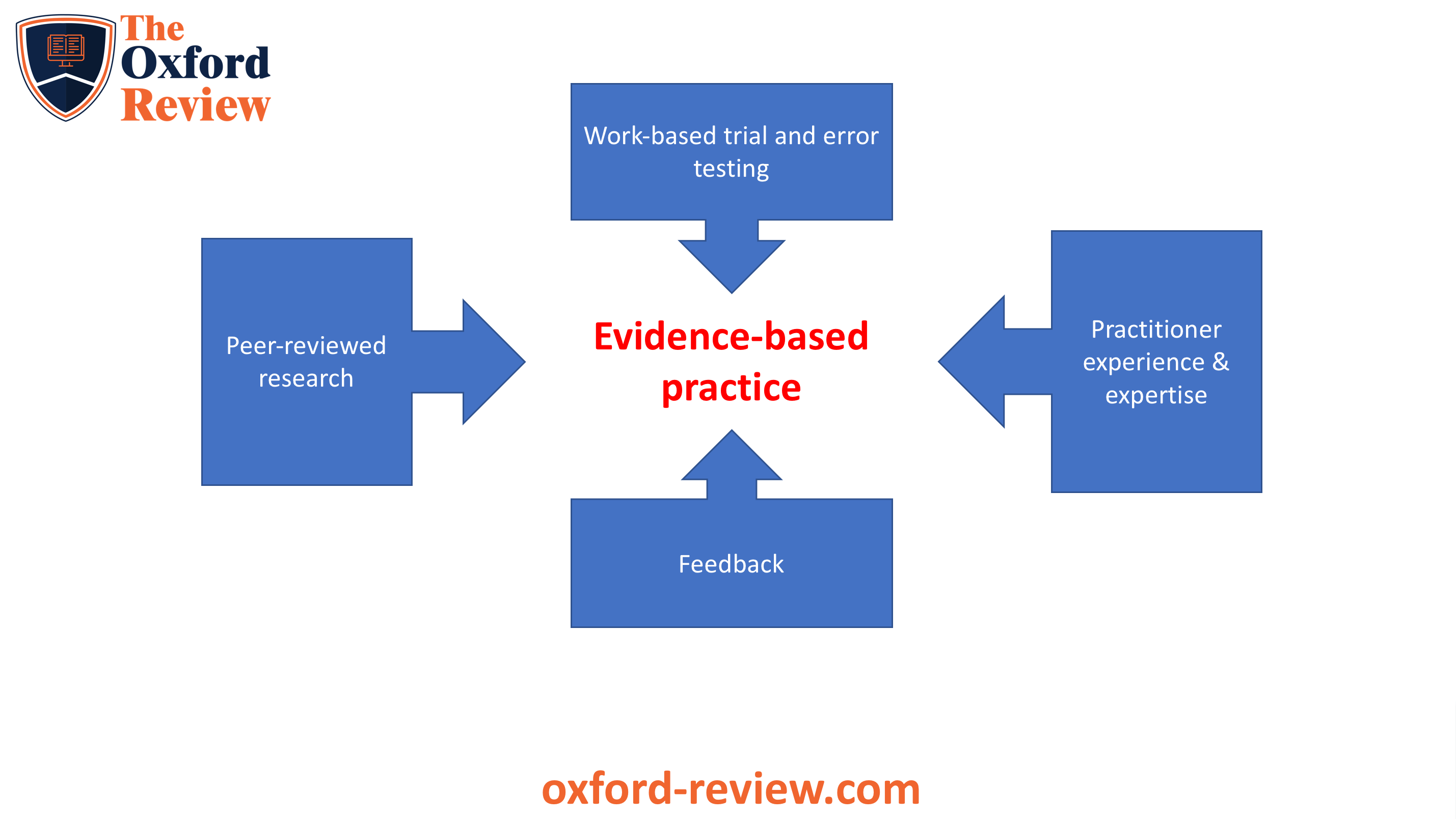Evidence-based practice

Evidence-based practice (EBP) refers to the systematic process where-by decisions are made and actions or activities are undertaken using the best evidence available. The aim of evidence-based practice is to remove as far as possible, subjective opinion, unfounded beliefs, or bias from decisions and actions in organisations. Evidence for decisions comes from various sources:
- Peer-reviewed research
- Work-based trial and error testing
- Practitioner experience & expertise
- Feedback from practice, practitioners, customers, clients, patients or systems
Evidence based practice also involves the ability to be able to evaluate and judge the validity, reliability and veracity of the evidence and it’s applicability to the situation in question. This means that there are a series of methods and approaches for developing practice, and that evidence-based practitioners undergo continual development and training as practice develops.
EBP has been a growing phenomenon in many areas, most notably the air industry and health services.
Read more about evidence based practice:
- The essential guide to evidence-based practice
- Evidence based practice: from theory to reality
- The counter-intuitive side of evidence based practice
- Research for evidence based practice and credibility
- The two main things that make evidence based practice work
- Making evidence based practice work: The 3 main challenges
- Making evidence-based practice work: Part 2 – Solutions
- What’s the difference between data and evidence?
- How evidence-based practice makes people more flexible and adaptable
- The devastating effect of opinion-based decisions
- The role of experience in evidence-based practice
Back to The Oxford Review Encyclopaedia of Terms
Be impressively well informed

Get the very latest research intelligence briefings, video research briefings, infographics and more sent direct to you as they are published
Be the most impressively well-informed and up-to-date person around...
